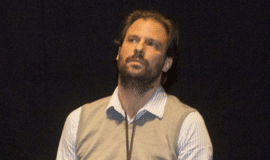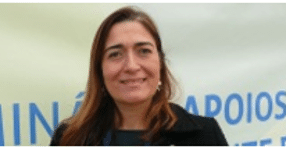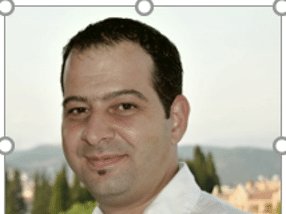Date and time
Please note that this event has been cancelled due to the coronavirus (COVID-19) outbreak. In taking this decision we are complying with instructions given by the University of Lisbon to their staff. On behalf of the organisers we apologize for any inconvenience. If you have any queries, please get in touch with Klara Sobekova via email Klara.Sobekova@RegionalStudies.org
DEADLINE FOR SUBMISSION OF ABSTRACTS: 15 March 2020
The main aim of EU cohesion policy is to deliver economic, social and territorial cohesion. Arguably, since the financial crisis and ensuing recession the EU has prioritised jobs and growth over social cohesion. Now, as the economic conditions improved after the economic crisis with returning economic growth and reducing unemployment levels in many member states, it is important to re-examine the social dimension of EU cohesion policy. Despite falling unemployment, 118 million EU citizens remain at risk of poverty and social exclusion (European Commission, 2017). An objective of EU 2020 strategy is to reduce the number at risk of poverty and social exclusion by 20 million. This target remains some way off and progress on the social dimension appears to be lagging the economic objectives. Similarly, the social issues appear to be widening within the member states, with significant regional and territorial variances, and new challenges are paving the way for an extension of the scope of action of EU cohesion policy (e.g. migration, youth unemployment, poverty).
This research workshop will examine the social dimensions of EU cohesion policy by focusing on, and providing fresh thinking about:
- the policy dynamics of the social inclusion objective
- the economic implications of the social dimension
- impact on territorial cohesion – social changes within and between regions, and places
- the Social Pillar and the social implications of proposed changes to cohesion policy post 2020, notably ESF+, of the new EU Green Deal and of the new Just Transition Mechanism
- future progress toward Europe 2020 targets.
Proposed papers should include the following themes:
- Social inclusion: including migration (immigrants, refugees, asylum seekers, but also intra-national migration); integration of vulnerable groups/protected characteristics.
- Gender and equality dimensions: research on the heterogeneous issues including intersectionality (those most at risk of poverty and social exclusion often face multiple barriers) and inter-generational issues – changing challenges facing the EU’s youth and older people.
- Role of social partners in social and territorial integration; including non-profit organisations, community organisations.
- Measuring and delivering social inclusion: including concepts and measures of ‘well-being’ ‘inclusive growth’, quality of life, and the European Social Progress Index, as well as the social impacts of competitiveness in EU regions and the effectiveness of measures addressing poverty and unemployment (incl. youth unemployment).
Keynote speakers
 |
Paolo Graziano is Professor of Political Science at the University of Padua and Research Associate at the European Social Observatory, Brussels. He has also been Honorary Professor at the Glasgow School for Business and Society – Glasgow Caledonian University (2015-2018). He has held visiting positions at a number of universities, including Cornell University, University of Cambridge, University of Oxford, Sciences Po Paris, Université Paris II Panthéon Assas, University of Melbourne, Université Libre de Bruxelles, University of Washington, European University Institute, University of Roskilde, University of Amsterdam, University of California Berkeley. He teaches Political Science, Comparative Politics, and Public Policy Analysis |
 |
Carla Leal , Agency for Development and Cohesion, Director of the Agency’s Strategic Monitoring and Evaluation Unit
(to be confirmed). |
 |
Mert Kompil is a scientific project officer at the European Commission’s Joint Research Centre (JRC). He is a member of the LUISA Territorial Modelling Platform within the Territorial Development Unit, which is based in Italy. In his current position, he is dealing with research on urban and transportation policy, land use models and accessibility. He is one of the main developers of the Commission’s Urban Data Platform and co-author of the latest JRC report called ‘The Future of Cities – opportunities, challenges and the way forward’. Before moving to Italy, he worked as a post-doctoral researcher and a transport policy analyst in Spain. He was a member of the Joint Research Centre’s unit for Economics of Climate Change, Energy and Transport. His research has been published in various international journals including Sustainable Cities and Society, Transportation Research Part A: Policy and Practice. |
Paper proposals
We invite theoretically rooted, research-based paper proposals from both scholars and practitioners which address the questions listed above. Comparative papers and papers that employ original research designs and methods will be particularly welcome.
We invite you to submit an abstract. Proposals should be submitted by email to RSANetworkLisbon2020@gmail.com including:
- a PowerPoint file of maximum 3 slides, outlining: conceptual framework, research questions and design, and key findings;
- an abstract of up to 500 words, summarising the research and clearly outlining its originality and contribution to the scholarly and/or policy debates;
- a short bio of up to 150 words accompanied by full contact details of the Author(s).
- abstracts should be submitted to: RSANetworkLisbon2020@gmail.com
- abstract should include: Title, names of all the authors, affiliation and full contact details
- acceptance notification: March 20, 2020
- registration https://docs.google.com/forms/d/e/1FAIpQLScWYrrofgnduaB6H41l1kD2iFQDkR3QyQy2nmPXHmqI06vIVg/viewform
- final programme: April 15, 2020
Contributions and outputs
- Presentations will be limited to 15 minutes to allow room for discussants’ feedback and debate. Speakers will be encouraged to use images, diagrams, infographics, etc. in their presentations.
- Speakers are warmly invited to send a 1-slide image to be shared on the social media of the research network. This image should be provided 10 days before the workshop according to the layout provided by the research network.
- Full papers, of max 7,000 words all-inclusive, will be due by 2nd May 2020 to the and sent to RSANetworkLisbon2020@com
- An edited volume/eBook or a special issue in a chosen journal will be published following the event.
Practical information
This workshop will be held under the auspices of the Regional Studies Association’s Research Network on EU Cohesion Policy, co-organised with the Network`s partners and hosted by Institute of Geography and Spatial Planning, University of Lisbon. More information about the Network can be found on the RSA website and on Facebook.
Main Organisers for this workshop are: Eduarda Marques Da Costa and Pedro Franco (University of Lisbon), as local organisers, and Laura Polverari (University of Padua), Leaza McSorley (University of Sunderland), Marcin Dabrowski (TU Delft), Nicola Francesco Dotti (VUB) and Oto Potluka (University of Basel), as academic convenors.
Participation in the event is free of charge. Participants not presenting papers are very welcome, but will need to register. Lunch and refreshments will be provided, and speakers will be invited to a workshop dinner.
Thanks to the financial support from the RSA, several travel bursaries can be offered. Bursaries will be offered on a ‘first come, first served basis’. To enquire about bursaries and practical information about the workshop please contact Eduarda Marques Da Costa (eduarda.costa@campus.ul.pt). For any other enquiries please contact: Eduarda Marques Da Costa (eduarda.costa@campus.ul.pt), Pedro Franco (pedrofranco@campus.ul.pt), Laura Polverari (laura.polveari@unipd.it), Leaza McSorley (leaza.mcsorley@sunderland.ac.uk), Marcin Dabrowski (m.m.dabrowski@tudelft.nl), Nicola Dotti (Nicola.Dotti@vub.be) and Oto Potluka (oto.potluka@unibas.ch).